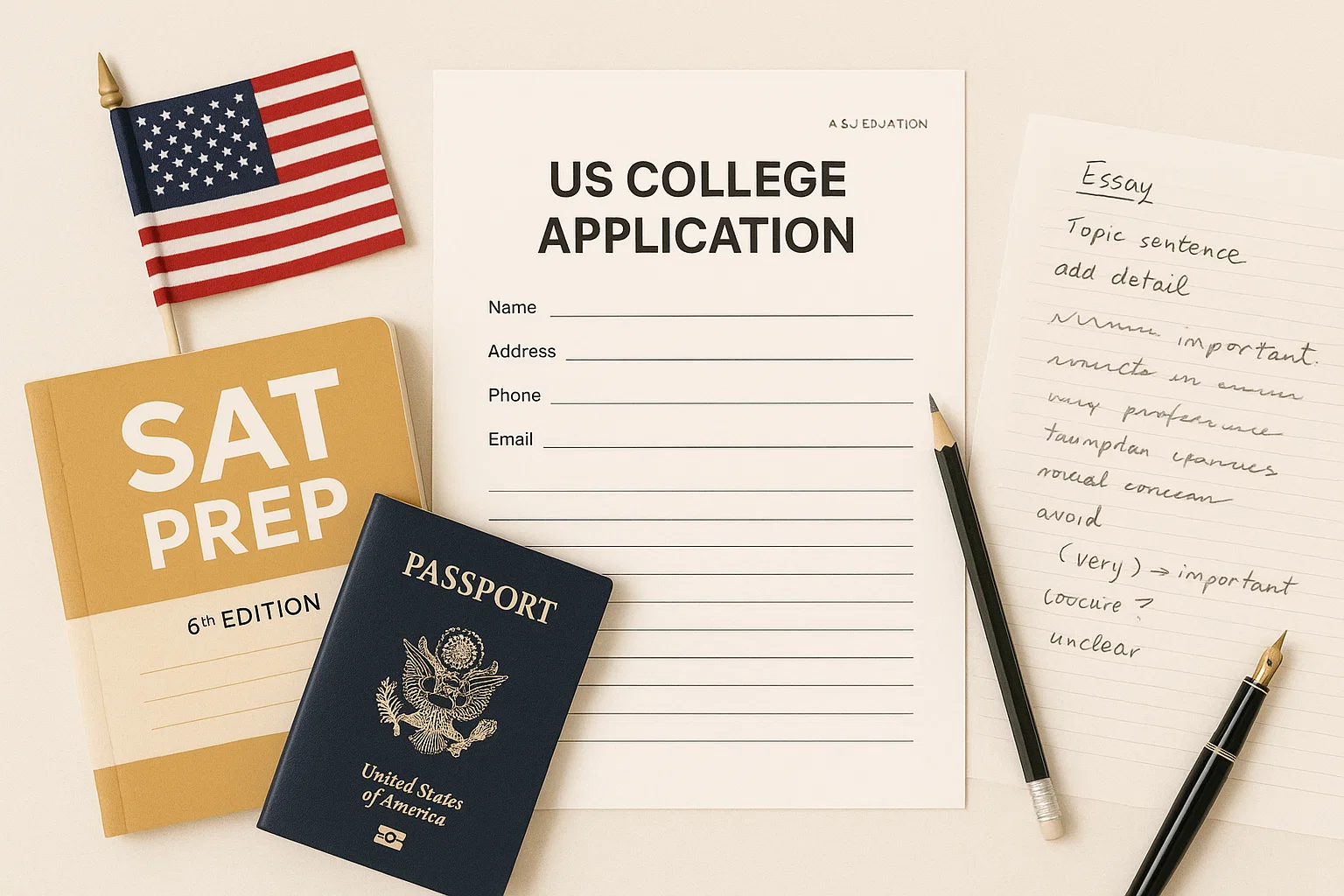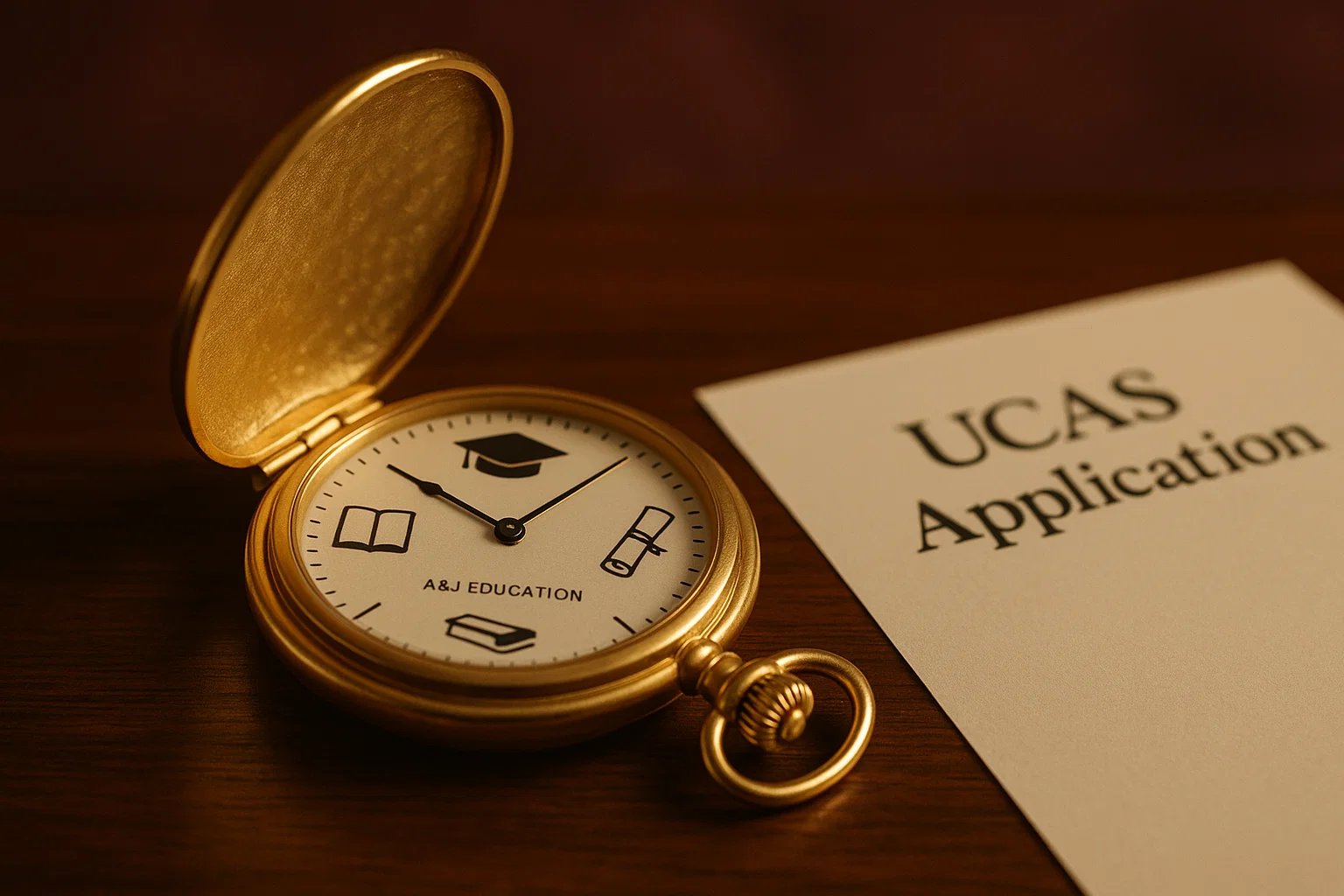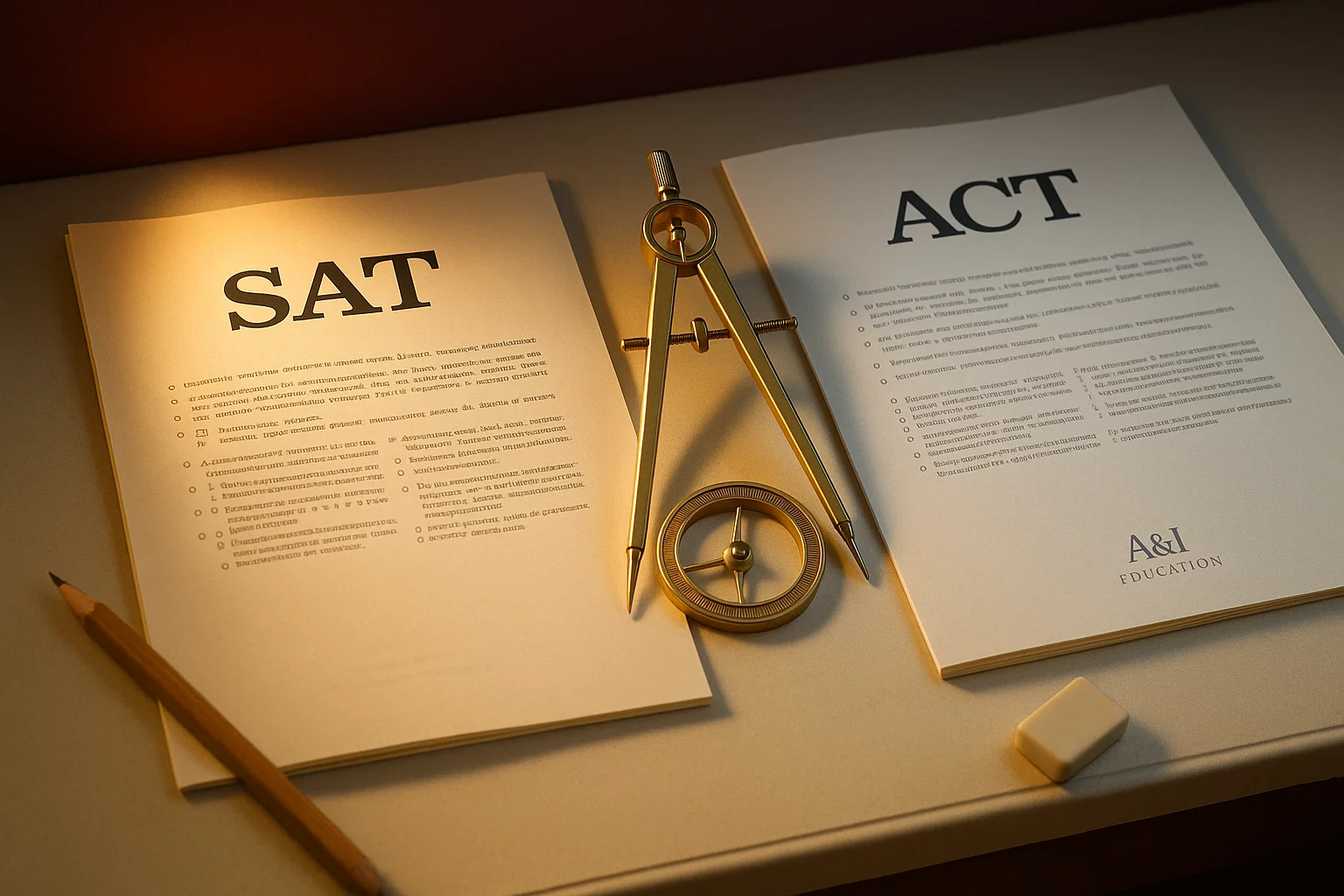
What are US Universities Looking for?
July 15, 2025
To become an ideal candidate for top US universities, it is crucial to understand and embrace their "holistic approach" to admissions. This means they evaluate the "whole person" and seek students who will positively contribute to their campus community, beyond just academic achievements. The application process for top US universities, particularly Ivy League institutions, is notoriously difficult and highly competitive, with some acceptance rates as low as 3.19%. There is no single formula for success; instead, your strategy should be tailored to your personal passions, personality, motivations, and aspirations.
Here are the key components and strategies US universities holistically assess in international undergraduate applicants:

Academic Performance
Academic performance is a highly significant factor, often making up approximately 40% of your application's overall evaluation.
- Grades and Rigour: Universities look for outstanding grades, typically a GPA hovering around 4.0, with many successful applicants having weighted GPAs exceeding 4.0. They also assess the strength and rigour of your high school curriculum, expecting you to take the most challenging courses available, such as AP, Honours, or IB courses. This demonstrates your willingness to push yourself intellectually and your ability to handle demanding coursework. Choosing courses wisely, especially those aligning with your strengths and interests, is key.
- Transcripts: Colleges require transcripts, which list every class taken and the grades received. If your transcripts are not in English, a certified English translation may be needed, and if your grading system differs from the US 4.0 scale, a credential evaluation agency might be required.
- GPA: Your Grade Point Average (GPA) is a measure of your academic performance, usually on a scale of 0 to 4.0 in the US. A weighted GPA accounts for tougher classes, potentially boosting your score. A high GPA (aiming for 3.0 or higher, with top Ivy League schools often seeing averages above 3.9) is essential.

Test Scores
Standardised test scores, while varying in importance, can still provide a valuable advantage.
These scores can serve as a differentiator in a competitive applicant pool, especially for those applying to prestigious institutions.
- Standardised Tests (SAT/ACT): Submitting strong SAT or ACT scores can help your application stand out, even in test-optional scenarios. Ivy League schools often have average SAT scores well above 1500 and ACT scores in the 33-35 range. It's wise to prepare for these tests, even if test-optional policies are in place, as some schools may reinstate requirements or use scores for merit-based financial aid.
- English Language Proficiency: As an international applicant, you may be required to take an English proficiency test, most commonly the TOEFL or IELTS, though some universities also accept the Duolingo English Test. These tests help admissions officers assess your ability to comfortably speak and study in English. Research each school's specific requirements and minimum scores.
Extracurricular Activities and Leadership
Strong extracurriculars are critical, often accounting for around 30% of the overall evaluation.
- Passion and Depth: Universities are not looking for students who dabble in many activities; they prefer depth of involvement and dedication to a few activities that genuinely excite you. These activities should showcase your passion, initiative, and dedication to a chosen field, especially if it aligns with your intended major.
- Impact and Leadership: Colleges want to see how you have demonstrated leadership, teamwork, and time management skills. Seek opportunities to organise events, start clubs, or mentor others, and highlight the quantifiable impact you've made. Examples include participating in original research, competing in academic Olympiads, publishing a book, creating a successful app, starting a non-profit, or being a sports team captain.
- Work Experience: Holding a job, whether part-time or an internship, demonstrates a strong work ethic and a sense of responsibility. If work was necessary to contribute to family finances, explaining this in your application is beneficial.

Essays and Personal Statements
Your essay is a crucial part of your application, offering the best opportunity to "sell" yourself and demonstrate what sets you apart.
Crafting a compelling essay requires introspection and a clear narrative that highlights your unique experiences and aspirations.
- Authenticity and Narrative: It should be personal, authentic, and reveal your motivations, passions, leadership qualities, and values. A well-written essay captures your authenticity and helps admission officers determine if you're a good fit for their campus community and mission.
- Supplemental Essays: Many US universities require additional supplemental essays tailored to specific questions or missions. Copying and pasting essays without tailoring them is a significant mistake, as admissions officers are adept at identifying genuine effort.
- Proofreading and Feedback: Meticulous proofreading and getting a second opinion (from a peer, teacher, or mentor) are crucial, as sloppy applications can raise red flags for admissions officers.

Letters of Recommendation
Recommendation letters provide a "human side" to your application, offering an outside perspective on your academic performance, character, and drive from influential people in your life.
- Relationship Building: Securing strong, personalised recommendations requires establishing strong relationships with teachers, mentors, or coaches who know you well and can provide specific examples of your abilities. Proactively building these relationships early in your high school career is essential. Teachers can highlight your impressive CV achievements, validating the authenticity of your work and making your story more believable.
- Types of Recommendations: Most universities ask for at least one reference from teachers. Some, particularly in the US, may ask for up to three, often including a counselor recommendation.
Personal Qualities and Character Attributes
Colleges seek students who will positively contribute to their community and possess desirable traits beyond academics. These include:
- Intellectual Curiosity: Demonstrating an inquiring mind by reading beyond the curriculum or researching topics of interest.
- Resilience and Work Ethic: Showing a willingness to work hard, overcome challenges, and persevere to complete tasks.
- Collaborative Spirit and Adaptability: Highlighting an ability to work well in groups, contribute to the institution, and adapt to new situations.
- Leadership and Initiative: Showcased through taking responsibility, leading projects, or making an impact.
- Cultural Awareness and Global Perspective: Engaging with diverse viewpoints and contributing to an inclusive campus environment.
These qualities can be showcased through your essays, activities, and recommendation letters. Ivy League schools, in particular, are looking for "change makers" and experts in their areas of interest, who are transforming big dreams into bigger realities and making positive marks on society.

Demonstrated Interest and Fit
Colleges want to admit students who are genuinely excited about attending their school.
- Engagement: Actively engaging with the campus community demonstrates interest. This can include attending tours, webinars, connecting with admissions officers, following their social media, or participating in virtual events.
- Early Application: Applying Early Decision can signal strong interest, though it is a binding commitment.
- Research: Thoroughly researching a specific school to articulate why it aligns with your goals and interests is a powerful asset.
Overall Strategy for Success
The application process is notoriously difficult and highly competitive.
- Start Early: It is crucial to start planning and preparing early, ideally when starting high school (e.g., September of Grade 10 or Year 11), or even in middle school. This allows ample time to develop college-level skills, academic prowess, and build a strong holistic admissions profile.
- Map Out a Holistic Approach: You need to work on all relevant components simultaneously, as focusing on just one aspect is a recipe for rejection. A solid admissions strategy will guide decisions about college prep classes, extracurriculars, test preparation, and essay articulation.
- Be Authentic: Don't try to fit a university's mold. Instead, find one that fits your values and goals and communicate your authentic self throughout your application.
- Utilise Resources: Leverage school guidance counselors, teachers, mentors, and potentially professional admissions strategists to help navigate the complex process and ensure your application stands out.

By working on all these components diligently and strategically, you maximise your chances of becoming an ideal candidate for top US universities.

At A&J, we help families plan and shape a profile that truly reflects each child’s individual goals, interests, and strengths. Rather than forcing students to fit a predetermined mould, we work closely to develop a tailored strategy that aligns with their personal ambitions and the expectations of top US universities.
From academic planning and extracurricular development to essay guidance and application support, our approach ensures that every part of the process contributes to a coherent, compelling, and authentic profile. Our goal is not just to maximise admissions success, but to help each student grow into the person—and applicant—they genuinely aspire to become.

HEAD BACK TO STORIES
THIS HAPPENING




















.png)

